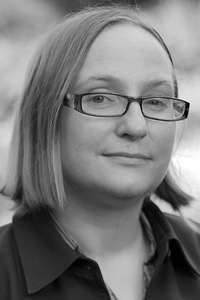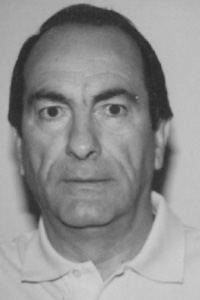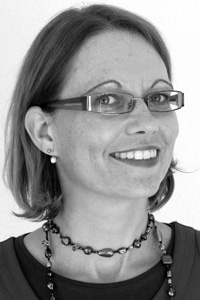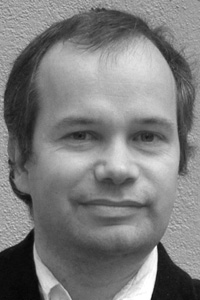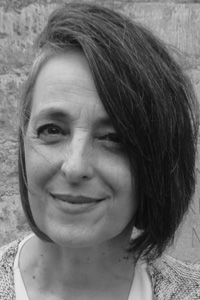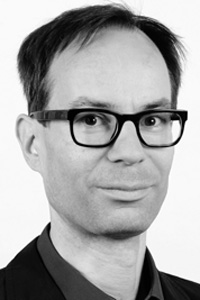Genealogy of Popular Science - Keynote Speakers

Prof. Dr. Courtney Ann Roby, Cornell University, Ithaca, New York
|
|
Courtney Ann Roby's research interests focus on the literary aspects of scientific and technical texts from the ancient world, the interaction of verbal and visual elements in those texts, and the definition and dissemination of scientific work. Her first book (Technical Ekphrasis in Greek and Roman Science and Literature, 2016) traces the literary techniques used in the textual representation of technological artifacts from Hellenistic Greece to late-ancient Rome. Her new book project focuses on Hero of Alexandria, whose multidisciplinary technical treatises spanned topics from pure geometry to the construction of mechanical automata, and who remained an influential figure in the history of mechanics through the 18th century. Other projects address how contemporary philosophy of science can help us understand the "scientific fictions" of Seneca's Natural Questions, how cognitive-scientific ideas are reflected in Ptolemy's astronomical and harmonic works, and how early printed editions of ancient technical treatises rework ancient authors' materials for a new context of production and propagation. |
Prof. Dr. José Antonio Fernández Delgado, Universidad de Salamanca
|
|
José Antonio Fernández Delgado is Emeritus of the University of Salamanca. He obtained his PhD degree 1976 at the same University and was full professor of Greek Philology since 1987, first at the University of Extremadura and from 1991 until 2017 at the University of Salamanca. He was awarded with several grants, among them the Alexander von Humboldt grant for research activities at the Freie Universität Berlin (1986, 1987, and 1992) and, later, at the Humboldt-Universität Berlin (2009). Some of his areas of research concern ancient poetry, orality in Greek literature, intertextuality in Greek and Latin Poetry, school papyri, and school and literature in Greece. He has published 10 books, among them a translation of Hesiod’s poetry, and more than 150 articles in renowned journals and edited volumes. He was Member of the Steering Committee of the Coimbra Group of European Universities (1997-2001, 2001-2003), among other academic management positions. |
Prof. Dr. Marion Gindhart, Johannes Gutenberg Universität Mainz
|
|
Marion Gindhart is extraordinary professor at the Johannes Gutenberg University Mainz. Since 2013 she has been co-initiator of the DFG Research Training Group "Frühe Konzepte von Mensch und Natur" (Latin Studies). From 2010-2016 she was junior professor in Mainz where she represented the field of work "Paradigma Alte Welt" at the Institute for Ancient History. She has been working in the DFG project "Opera Camerarii. Eine semantische Datenbank zu den gedruckten Werken von Joachim Camerarius d.Ä. (1500-1574)" at the Julius-Maximilians-Universität Würzburg since 2017. Her areas of research include ancient and early modern knowledge, natural phenomena in their discursive formations, early modern history of disputes and translations of antiquities, and historical narratology. |
Dr. Oliver Hochadel, IMF-CSIC, Spanish Research Council
|
|
Oliver Hochadel is historian of science and works as tenured scientist at the Institució Milà i Fontanals in Barcelona, which is part of the Spanish National Research Council (CSIC, Consejo Superior de Investigaciones Científicas). He received a doctor's degree at the Freiburg University (Switzerland) for a dissertation on Public Science and electricity during the German Enlightenment that was published 2003. His research focuses on the relationship of science and the public in general, as well as on case studies on electricity in German Enlightenment, the zoological garden in the 19th century, science and state around 1900 and the contemporary paleoanthropology.
|
Prof. Dr. Dr. Erna Fiorentini, Karlsruher Institut für Technologie
|
|
Erna Fiorentini received two doctor's degrees at the Friedrich-Wilhelms-University Bonn, first in geochemistry and classical archeology, and then in art history. From 2003-2009 she was research associate at the Kunsthistorisches Institut of the Freie Universität Berlin and, at the same time, she was affiliated scholar at the Max Planck Institute for the History of Science in Berlin. After her habilitation in art history at the Freie Universität Berlin in 2009 she researched and taught as a Heisenberg Fellow of the Deutsche Forschungsgemeinschaft at the Institut für Kunst- und Bildgeschichte of the Humboldt-Universität zu Berlin. In 2011, 2012, and 2016, she was a guest scholar at the History of Art Department – Center for Visual Studies at the University of Oxford. In summer semester 2017 she was visiting professor at the Kunsthistorisches Institut of the Freie Universität Berlin. Currently, she is visiting professor for art history at the Karlsruhe Institute of Technology. |
Dr. Matthias Bruhn, Humboldt-Universität zu Berlin
|
|
Matthias Bruhn studied Art History and Philosophy in Hamburg. He was research associate at the Warburg-Haus and at the Brandenburgische Technische Universität (BTU) Cottbus. He was visiting fellow at the Clark Art Institute in Williamstown (Massachusetts), postdoctoral fellow whithin the framework of the Getty Grant Program, and fellow at the Akademie Schloss Solitude. Besides, he is co-founder and advisory board member of ArtHist.net. Since 2005 he leads the research group “Das technische Bild” at the Humboldt-Universität Berlin and is member of the Excellence Cluster “Bild Wissen Gestaltung. Ein interdisziplinäres Labor”. During the academic years 2016/17/18 he had a deputy professorship at the Staatliche Hochschule für Gestaltung Karlsruhe. His research focuses on art and political representation of Early Modern Times, history of the scientific images, mass-media and mass-image. He is co-editor of the annual book „Bildwelten des Wissens“. |

